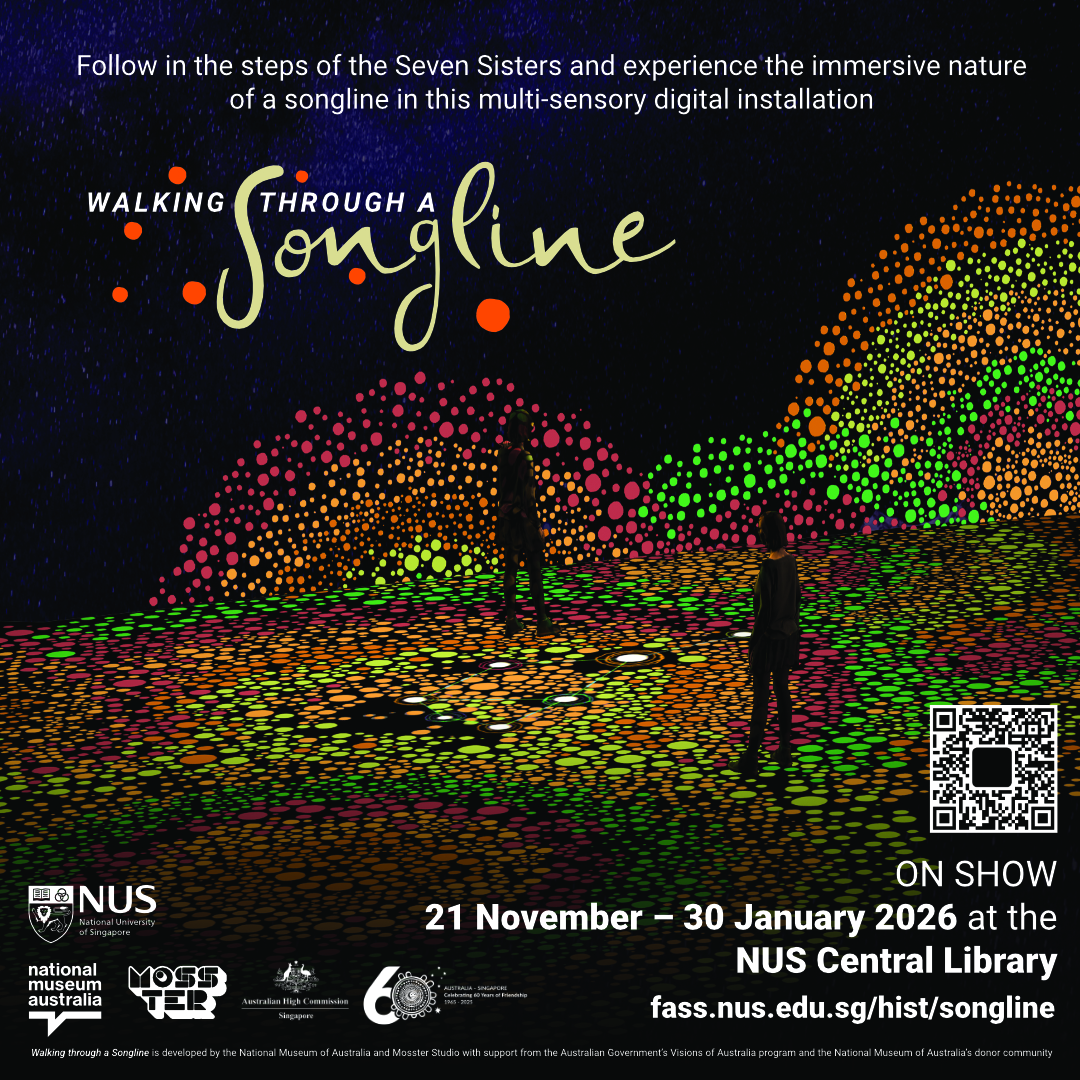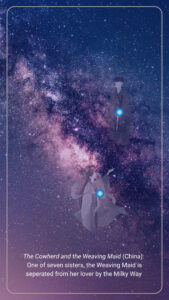News
Recording now available: Singapore Heritage Roundtable (11 November 2025)
As part of the “Celebrating Singapore Studies: Sixty Years of Nationhood” campaign, the Singapore Research Nexus hosted a richly informative Heritage Research Roundtable that featured four National Heritage Board Heritage Research Grant recipients from FASS and brought fresh scholarly light to lesser-known chapters of Singapore’s past. The full video recording is now available here.
Programme
- Welcome Remarks and Chair: Assoc Prof Jack Meng-Tat Chia (NUS History & Assistant Dean of Research, FASS)
- Opening Remarks: Ms Melissa May Tan (Director, Heritage Policy & Research, National Heritage Board)
Presentations
- Dr Yang Yan (Research Fellow, NUS Chinese Studies)
In Their Own Ways: Identification and Documentation of Singapore’s Chinese Medicine
Explores how Singapore’s Chinese medical tradition diverged from mainland TCM, developing distinctive doctrines, diagnostics, and formulae shaped by local climates, migration patterns, and everyday clinical practice.
- Dr Clay Eaton (Lecturer, NUS Japanese Studies)
Mapping Middle Road: Prewar Japanese Community in Singapore
Reconstructs the vibrant yet largely forgotten “Little Japan” centred on Middle Road – home to merchants, photographers, dentists, schoolchildren, and karayuki-san – and its place within colonial Singapore’s cosmopolitan society.
- Dr Jinna Tay (Senior Lecturer, NUS Communications and New Media)
Re-Interpreting Fashion Narratives in Singapore: De-colonising the Modern
Draws on decades of newspaper archives (1950s-1990s) to reveal how fashion became a site where colonial ideas of modernity persisted, and how contemporary research can help deconstruct those inherited frameworks.
- Asst Prof Guo-Quan Seng (Assistant Professor, NUS History)
Small Businesses and Shops of Chinatown, 1819-1980s
A social history of the modest shophouses and enterprises that formed the backbone of Chinatown’s economy, tracing flows of textiles, rubber, remittances, and credit across regional Chinese networks.
We invite researchers alumni, heritage enthusiasts, and the wider public to watch the recording and discover how NUS FASS scholars are uncovering the diverse, lived textures of Singapore’s past.

Walking Through a Songline
Walking Through a Songline is an immersive digital experience that introduces visitors to the Seven Sisters Songline, one of the foundational stories of Australian Aboriginal culture. Songlines map the routes taken by Ancestral beings as they travelled across Australia, creating the land and its people. Known also as Dreaming, these narratives are used by Aboriginal communities to hold and transmit important geographical and moral knowledge to new generations. Jointly organised by the Department of History and the National Museum of Australia, this Indigenous-led exhibition is a unique opportunity to experience ancient knowledge in an embodied way. The exhibition runs at NUS Library's 360imx space at Central Library Level 4 from 21 November to 30 January 2026, on Monday to Friday at 1100-1400. Walking Through a Songline is suitable for all ages and open to the public, there is no admission fee. See the exhibition microsite for more details on opening hours and for directions. The Singapore premiere of Walking Through a Songline is supported by the Australian High Commission, Singapore.

Iwan-no-chyu: The origin of the Pleiades

Once upon a time, there were seven sisters and three brothers. The sisters were very lazy. They played continually from morning to evening. They did not work for their family at all. Meanwhile, the three brothers worked very hard, plowing their fields from early morning to late evening.
The brothers asked their sisters, "Please help us to plow the fields."
The sisters replied, "No, we won't. If we plow the fields, our hands will get dirty. We will never do such dirty work." One brother said, "Don't worry. You can wash your hands with river water." The sisters said, "Oh! How terrifying! We could fall into the river if we washed our hands there." Another brother said, "No problem. It's easy to grab grasses on the riverside so that you would never be swept away." The sisters replied, "Oh! The grasses could cut our hands." Finally the sisters said, "We want to become stars, because they have nothing to do".
The three brothers got so angry that they ran after their seven sisters to catch them. The seven sisters got into a boat and escaped from their brothers. The three brothers got into a boat and chased after them. However, it was hard to catch up with their sisters’ boat, because they had seven rowers. Eventually the seven sisters rowed their boat up into the starlit sky. The three brothers followed them into the sky. When the seven sisters reached to the western sky, a kamui, a god of the Ainu people appeared, in front of the seven sisters and said, "How lazy you are! Halt!" Their boat stopped immediately.
The kamui turned the seven sisters into a group of small, faint stars called “Iwan-no-chyu”, the Pleiades. As punishment for their laziness, the kamui let them rise into the sky when people finished their work in the fields and cold winter approached. The youngest sister was ashamed of herself and covered her face with hands. Therefore, one of seven stars became unable to see. The kamui praised the three brothers for their hard works, and turned them into a straight line of three bright stars, which are the three stars of Orion.
Traditional poetry of the Ainu people, Hokkaido, Japan.
Compiled by: Kouichi Kitao
Translated by: Ramzey Lundock and Norio Kaifu
Read more about the 'Stars of Asia': https://fumiyoshidaermei.wixsite.com/starsofasia This post is associated with research conducted with the Walking Through a Songline exhibition, running from 21 November to 30 January 2026.The Cowherd and the Weaving Maid (China)
 The beautiful and charming Weaving Maid (Zhīnǚ 织女) was a servant in the celestial palace of the Queen Mother of the West (Xī Wángmǔ 西王母), where she spent her days weaving.
The beautiful and charming Weaving Maid (Zhīnǚ 织女) was a servant in the celestial palace of the Queen Mother of the West (Xī Wángmǔ 西王母), where she spent her days weaving.

